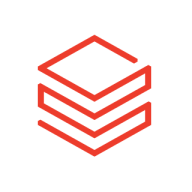

Find out what your peers are saying about Snowflake Computing, Microsoft, Google and others in Cloud Data Warehouse.
When it comes to big data processing, I prefer Databricks over other solutions.
For a lot of different tasks, including machine learning, it is a nice solution.
As of now, we are raising issues and they are providing solutions without any problems.
Whenever we reach out, they respond promptly.
The tendency to route users to sales personnel with limited technical expertise detracts from the support experience.
Databricks is an easily scalable platform.
The patches have sometimes caused issues leading to our jobs being paused for about six hours.
While Oracle OBIEE is scalable, it is more of a niche product designed to work specifically with Oracle systems.
They release patches that sometimes break our code.
Although it is too early to definitively state the platform's stability, we have not encountered any issues so far.
Cluster failure is one of the biggest weaknesses I notice in our Databricks.
We prefer using a small to mid-sized cluster for many jobs to keep costs low, but this sometimes doesn't support our operations properly.
It would be beneficial to have utilities where code snippets are readily available.
We use MLflow for managing MLOps, however, further improvement would be beneficial, especially for large language models and related tools.
Oracle OBIEE has a steep learning curve compared to tools like SQL Server or Power BI.
It is not a cheap solution.
Oracle OBIEE is quite expensive, especially when compared to Microsoft's solutions.
Databricks' capability to process data in parallel enhances data processing speed.
The platform allows us to leverage cloud advantages effectively, enhancing our AI and ML projects.
The notebooks and the ability to share them with collaborators are valuable, as multiple developers can use a single cluster.
A valuable feature of Oracle OBIEE is its ability to automate some tasks, such as invoice analysis, saving a significant amount of clerical work.


Databricks is utilized for advanced analytics, big data processing, machine learning models, ETL operations, data engineering, streaming analytics, and integrating multiple data sources.
Organizations leverage Databricks for predictive analysis, data pipelines, data science, and unifying data architectures. It is also used for consulting projects, financial reporting, and creating APIs. Industries like insurance, retail, manufacturing, and pharmaceuticals use Databricks for data management and analytics due to its user-friendly interface, built-in machine learning libraries, support for multiple programming languages, scalability, and fast processing.
What are the key features of Databricks?
What are the benefits or ROI to look for in Databricks reviews?
Databricks is implemented in insurance for risk analysis and claims processing; in retail for customer analytics and inventory management; in manufacturing for predictive maintenance and supply chain optimization; and in pharmaceuticals for drug discovery and patient data analysis. Users value its scalability, machine learning support, collaboration tools, and Delta Lake performance but seek improvements in visualization, pricing, and integration with BI tools.
Oracle OBIEE (Oracle Business Information Enterprise Edition) is a business intelligence (BI) tool developed by Oracle. OBIEE will gather, store and analyze an organization's network data and compile the information to create reports, dashboard graphs, and performance analysis. OBIEE’s unique platform allows clients to discover new awareness and improve the speed of completing important business decisions by providing robust visual tools and intuitive realization coupled with the latest unmatched enterprise analytics available. OBIEE helps IT enterprise organizations to experience an intelligent view of all enterprise data from across all sources and empowers trusted users with increased levels of reliable, dependable access, interaction, and the ability to utilize the data to increase the overall effectiveness and productivity of the organization.
OBIEE provides unique immediate mobile access, intuitive dashboards, robust reporting, real-time alerts, metadata search, procedure management, direct access to Big Data resources, enlightened in-memory computing, and seamless systems management processes. These features seamlessly combine to make Oracle OBIEE a complete, top-of-the-line broad solution that is cost-effective, minimizes TCO, and provides a competitive, quick ROI for the entire organization.
Oracle OBIEE Top Features
Reviews from Real Users
Sandeep V., Process System Engineer at a comms service provider, tells us, “This solution is very easy for people who are building ad-hoc things. It's an enterprise solution so it can be deployed for a lot of users. There are some great new features that come with the 12c like data visualization, desktop BI Publisher, automation, and interactive dashboards. The product has good features. “
A user who is a CEO at a consultancy relates, “The most valuable feature is the visualization. The data warehousing, data storage, and data wrangling are all features that are in there, and it's one of the better products out there. A good thing is that for large datasets, it's very stable, especially when you have an Oracle database.”
A user who is a Principal Business Intelligence Architect at a computer software company suggests, "It is very biased towards Oracle infrastructure. One of the major red flags we have at the moment against Oracle is that it doesn't support deployment on other cloud providers. We're quite heavily vested in AWS as our infrastructure, and Oracle is yet to formally support deploying on those virtual infrastructure instances. That's quite disappointing, and it also cuts them out of over 70% of the market."
We monitor all Cloud Data Warehouse reviews to prevent fraudulent reviews and keep review quality high. We do not post reviews by company employees or direct competitors. We validate each review for authenticity via cross-reference with LinkedIn, and personal follow-up with the reviewer when necessary.